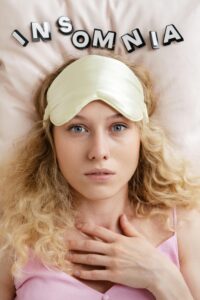 Signs of Magnesium Deficiency: Studies to Remedy Sleep, Bones, Headaches
Signs of Magnesium Deficiency: Studies to Remedy Sleep, Bones, Headaches
Magnesium is one of the most vital minerals for good health. It’s involved in over 300 functions in the body and is a required partner for enzymes which allows them to do their job.
Enzymes are high-energy protein molecules that are the spark for positive reactions in all the cells of the body and magnesium helps to provide the spark. A deficiency of magnesium can result in muscle aches and pains, leg cramps, fatigue, insomnia, migraine headaches, restless leg syndrome, bone loss, anxiety and high blood pressure.
Osteoporosis
From the journal of Biology and Trace Element Research comes a study showing that magnesium prevents bone loss in postmenopausal women. The women were given magnesium citrate for 30 days and at the end of the trial, the structural collagen in their bones increased and bone loss was halted.
Insomnia
In a study from the University of Medical Sciences in Iran, research was done with 46 adults who were experiencing insomnia. Taking two magnesium oxide tablets twice a day resulted in significant increases in sleep time and reduced cortisol levels in the body, which is a stress hormone that can keep people awake. In another research study from the Human Nutrition Research Center of the U.S. Dept. of Agriculture, scientists found that a high magnesium diet is associated with deeper, less interrupted sleep and prevents magnesium deficiency.
High Blood Pressure
Hypertension or high blood pressure is a leading cause of stroke. A stroke happens when the blood supply to the brain is reduced, which causes damage to brain cells. The American Journal of Clinical Nutrition analyzed the role of magnesium in preventing stroke and found that taking magnesium each day reduces stroke risk by 8%.
Restless Leg Syndrome
A study from the Journal “Sleep” showed positive results for restless leg syndrome. Magnesium was administered orally in the evening over a period of 4-6 weeks. Following magnesium treatment, restless leg movements associated with waking in the night decreased significantly. The researchers said: “Our study indicates that magnesium treatment may be a useful alternative therapy.”
Migraines
Studies have found that people with migraine headaches have low concentrations of magnesium in their body with magnesium deficiency. The word “cephalalgia” literally means head pain or headache. In a German study of 81 migraine patients published in the journal “Cephalalgia”, 42 percent of the people taking oral magnesium reduced both the duration and intensity of their migraine attacks. They also reduced their reliance on medications to control migraines.
One supplement shown to be effective for insomnia and pain is Sleep Minerals II from Nutrition Breakthroughs. This formula contains highly absorbable magnesium citrate and calcium citrate, the best minerals for sleeplessness and insomnia, as well as for heart health, restless legs syndrome, bone strength and menopause insomnia. It also includes vitamin D and zinc and is delivered in a softgel form with healthy carrier oils, making it more quickly absorbable than tablets or capsules and providing a deeper, longer-lasting sleep.
L.R.C. of Massachusetts says: “I had become dependent on sleeping drugs and couldn’t sleep without them. Now I take the Sleep Minerals before bed and I can sleep through the night without drugs. I’m also able to easily fall back to sleep if I do have to get up. Another benefit is it helps alleviate my chronic fatigue and aches and pains.”
Magnesium is more than a magnificent supplement. It’s a vital natural measure that can be used to maintain or restore one’s good health. For more information, visit the Sleep Minerals II page.



